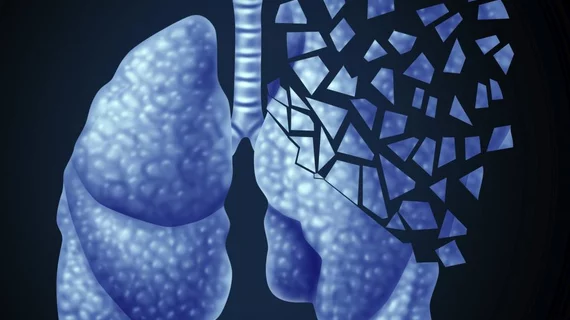ACR calls on providers, CMS to curb unnecessary lung cancer deaths
The American College of Radiology (ACR) is urging the medical community to take action against what they see as thousands of unnecessary lung cancer deaths each year.
Specifically, the ACR called out physicians for lacking awareness when it comes to lung cancer screening guidelines and the “catastrophic” cuts in Medicare reimbursement for low-dose computed tomography (LDCT) lung cancer screening, which now equate to around $60 per exam—less than half of what Medicare pays for mammograms.
“CT lung cancer screening can save more lives than any cancer screening test in history, but patients are not hearing about this test from their doctors,” said Ella Kazerooni, MD, Lung Cancer Screening Committee Chair, in a statement. “Medicare is not adequately covering these exams. This noncompliance and practical non-coverage is contributing to unnecessary deaths due to lack of screening.”
ACR also noted that updates to the Lung-RADS quality assurance reporting standards has reduced false-positives by 75 percent, meaning any positives far exceed the negatives on the road to saving the nearly 12,000 people who may die each year from a lack of screening.
“Thousands of people each year should not be allowed to die needlessly while the medical community fine tunes the only exam proven to save lives from the nation’s leading cancer killer. Medicare must also provide adequate reimbursement. We need to save lives now,” Kazerooni said.
According to the release, more than 220,000 people will be diagnosed with lung cancer in 2018 and nearly 160,000 will die from the disease. That exceeds all combined deaths from breast, colon and prostate cancer.

